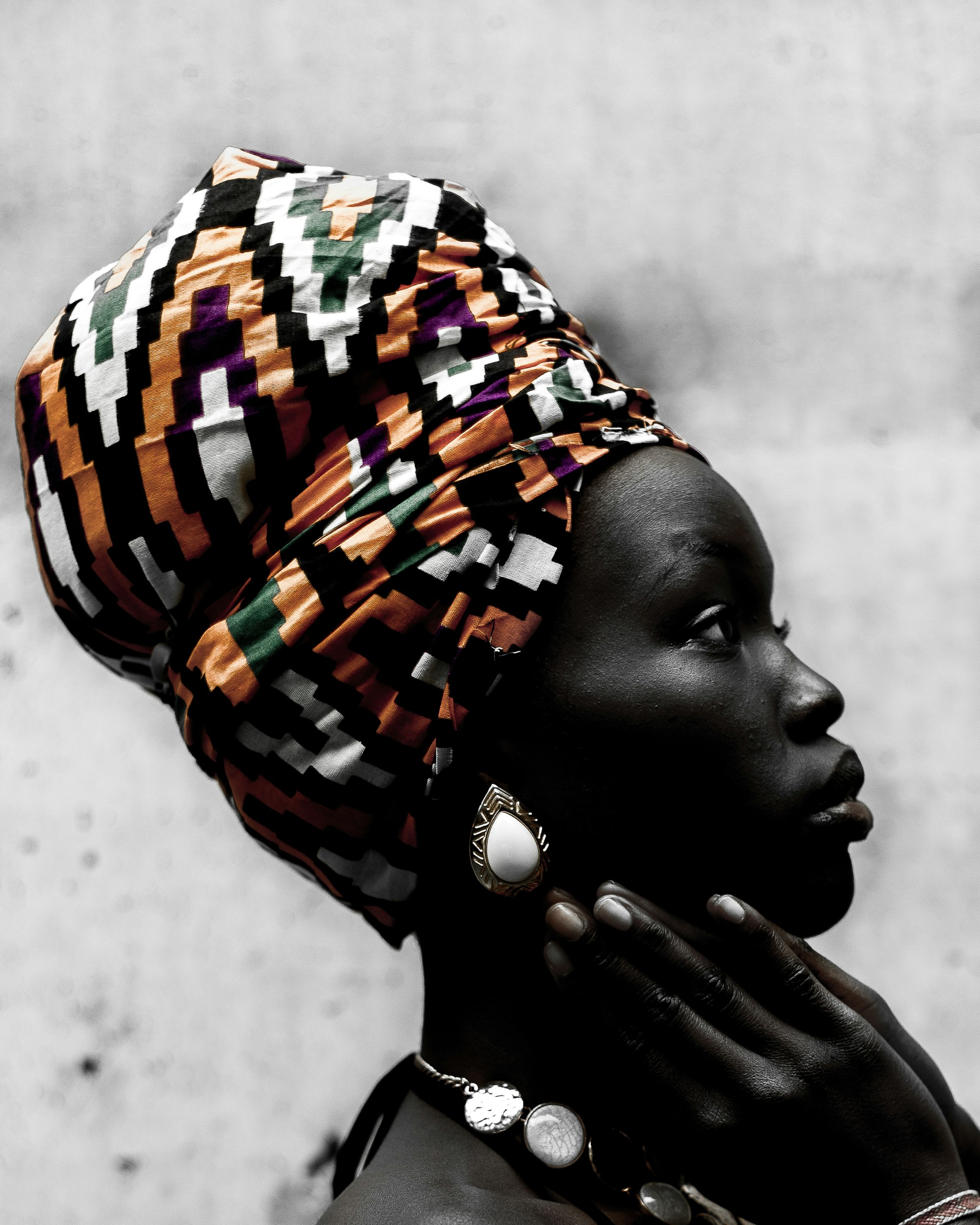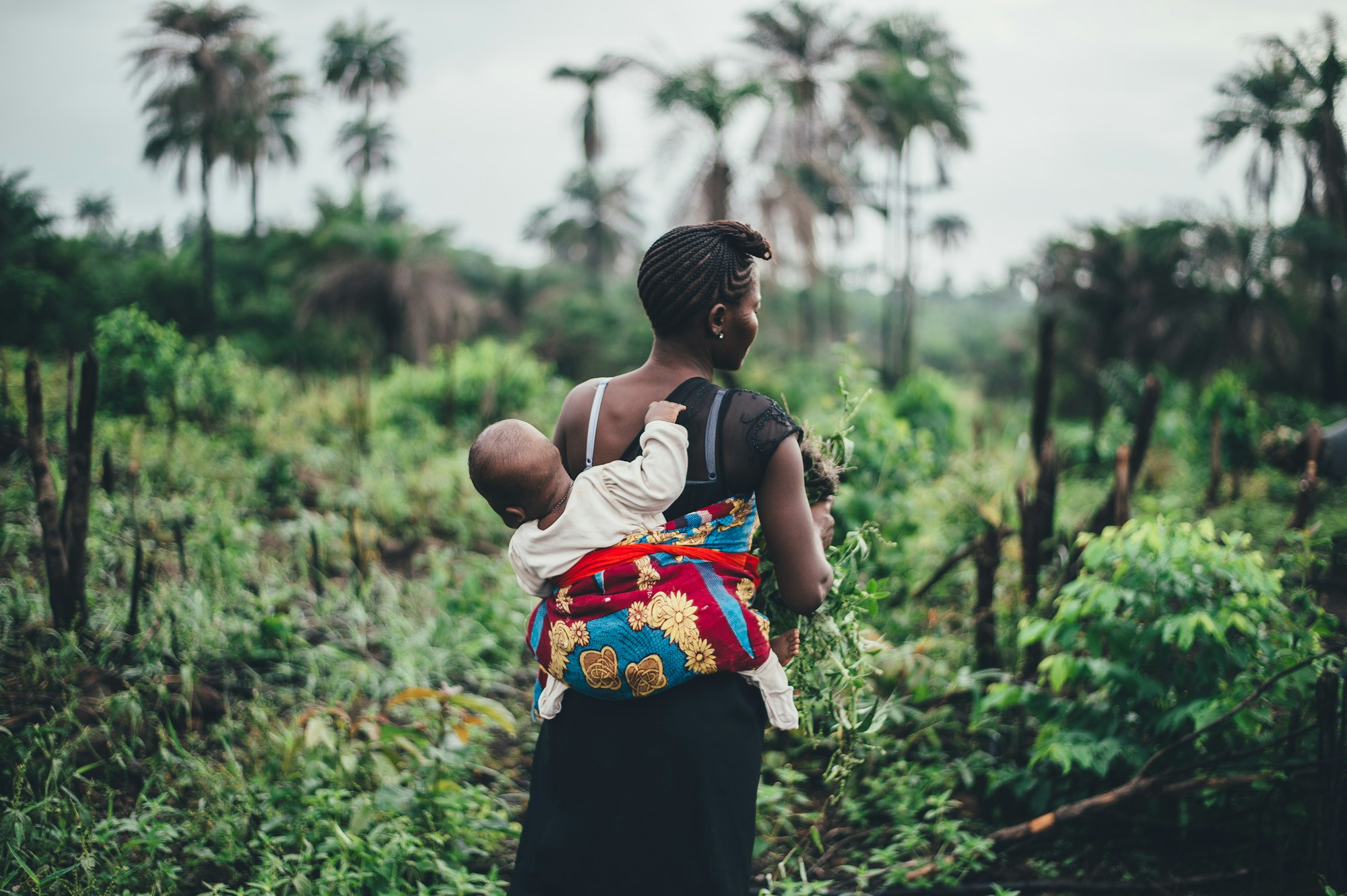
How a woman holds the world together for herself and her family
Dear Saga Reader: several of you asked for stories about people here in Tanzania. Here is one, mixed with another close to me. Please be advised my photos of Helen are refusing to load which is likely a bandwidth issue.
Right now, Helen Mally is cleaning the kitchen in the loft where I'm staying in Arusha, Tanzania. This burgeoning city of some two million plus is effectively safari central, in that it's within a decent driving or puddle-jumper distance from some of the world's most magnificent animal viewing spots, from the Serengeti to the famous Ngorongoro Crater.
Despite the fact that she was born here, Helen is unlikely to see these places as a guest. They are for rich people, certainly by local standards. Helen cleans the house, does the laundry and keeps those people, like me, comfortable. In that way that the best of Africa is often not for its own people, Helen works very hard to ensure that those of us who travel here are happy.
Helen's story is like so many women I have met or known, including the African American woman who was my second mother. More on that in a moment. Helen told me her story as translated by Eddie, the long-time cook and manager of Researcher's Rest.
Helen, a lovely, sweet-natured woman gifted with magnificent cheekbones and a generous nature, was born to a sewing machine salesman and a nurse in the small village of Sanya-Juu, which is close to Kilimanjaro. Juu means "up the hill." There were seven kids, of which six were girls. Helen was smack in the middle.
Her dad worked in Moshi, which for climbers is where most stay just before and immediately after the big climb. Her mother had been a nurse. Since her father was well-employed, the girls looked forward to full educations and a good life.
That was until her father died when she was fourteen. Schools here require fees, and without fees there is no education. That was the end of Helen's future as she had imagined, as well as for the other girls.
Not long afterwards, perhaps out of love and also perhaps out of sheer necessity, Helen married at sixteen. In that tradition of bountiful families, she began having girls. They had moved to Arusha which was growing fast.
Along the way, a mutual friend connected her with the two British women, Jo and Judith, who built the house where I am staying: Researcher's Rest in Arusha. This gorgeous home was originally in the middle of coffee fields, and is now surrounded by lively village life and plenty of activity. Helen came to work at Researcher's around 2008, taking care of the cleaning and laundry and swiftly becoming one of the backbones of the staff which keeps Researcher's such a friendly and clean place.
Helen was just 30 when her husband, who was a diabetic and who dearly loved Coca Cola, died suddenly. No one was aware he had diabetes, and to all accounts his love of sugar was his undoing. By that time Helen had three girls and was pregnant with a fourth. Helen's family with her husband had animals and a small farm, which were crucial to her survival.
However, as is the case with many African tribal customs, her husband's family demanded that she marry her husband's brother. When she refused, the family took the animals and the farm.
In some cultures, the death of a husband is considered the wife's fault. If she doesn't agree to marry another family member, it's considered their perfect right to relieve her of her most important possessions. While Helen didn't indicate that this was the case with her husband's family, this tradition is not uncommon throughout the world.
If that weren't enough, thieves removed her personal belongings from her house, including a high quality stove which had been a gift, making her home unsafe for herself and her four kids.
She moved to a safer place. As is also common in many tribes and villages, her family stepped in to assist with the school fees for her girls. In every way, Helen didn't want her girls to suffer the same fate she did, so education was paramount.
Helen said that the hardest part for her were the school fees and the rent, two big nuts which had to be paid, one to ensure their safety and the other to ensure a better future for her girls. Better than the one Helen was living, which was always and forever on a knife's edge.
Helen's eyes teared up, and I put my hand on her forearm. At that point, she couldn't talk for a while. Eddie, who has worked with her for years, filled in some of the blanks.
She was deeply depressed for a long time, he explained, but her girls continued to buoy her and give her hope. Judith gave her some money which allowed the girls to continue their schooling, which is beginning to pay off.
The entire family continues to live together, and here is where they are today. The oldest, Jessica is now 24. She is studying to become a pharmacist. One reason this is critically important is that I learned yesterday that the Tanzanian government just shut down sixty illicit pharmacies in Dar es Salaam, the nation's capital, because many were operating without a license. A local pharmacist explained to me that this creates a huge shortage, but for health and safety's sake, these clinics had to be shuttered.
Arusha is next, which likely means that more pharmacies will close, and Jessica, who will have her degree/certification, will be in high demand. That is precisely what Helen hoped for, although she has some schooling to finish first.
Asha, the second girl, is now 22 and studying to become a nurse like her grandmother. Both girls have been working internships under Covid, working in a local hospital.
In addition, the older girls were employed at Researcher's Rest, helping out at parties and babysitting for Ben Jennings' family. Jennings family lived in the loft where I now stay, and he had two young boys while also managing a very busy safari and climbing operation.
Sabrina, now 18 and Ilham, 9, are the youngest, still in school. A good bit of the family's future sits on the shoulders of the older girls' success.
In order to make ends meet, Helen has taken multiple jobs on the side, what Americans would refer to as side hustles. To be clear, to put four girls through school on the salary of a cleaning woman in Tanzania takes hustle beyond what most of us could possibly imagine.
That's especially because Jessica now wants to get involved with medicine manufacture, and Asha has now decided she wants to be an ob-gyn.
These two promising young women are still totally dependent upon Helen for the next five years. Each girl's schooling is $2k per year, for most of us a relative pittance. For a Tanzanian, that's 4 million shillings. Times two girls.
And two more getting older and also needing school fees.
In December of 2020, Jennings helped Researcher's Rest and its staff after the death of one of the owners. The other had returned to England for health care. Covid had shut the world down, and he was faced with a challenge: how to keep the staff employed during times of no tourist traffic?
Jennings set up this effort:

Many of us who knew the place, stayed here and who cared a great deal about the future of this lovely hotel donated. They met and exceeded their goal, but there's more.
While Ben is involved with some guidance and advice, effectively Researcher's Rest is the staff's project. From Eddie to Joseph in the kitchen to Joseph the guard, the hotel is run and managed locally. Helen is a powerful driving force behind many of the big decisions.
When Covid hit, Helen knew that not only was her future in jeopardy, but so was the future of her four girls. If she didn't have steady work, the outcome looked grim. She explained that that her family had other obligations as well, and couldn't keep picking up the school fees.
The campaign kept Researcher's staff paid in full, even when there were no guests at all. The staff showed up every day, maintained the place, were able to pay their bills and Helen was able to keep the kids in school with a steady roof over their heads.
You and I, when we put $10 or $25 into a GoFundMe campaign like this, often have no real idea of the impact of such a donation. Since I know the staff, I do.
Helen's story has particular meaning for me, because when I was barely eight years old, a Black woman came to work for my father on our farm. I ended up spending more time with Christine and her four children than I did my own family, and was fully aware of the challenges she faced.
Christine had been married off young, barely able to write phonetically. That didn't stop her.
On minimum wage back in the 1960s, side gigs making school lunches for white children and anything else she could find, Christine Brown put four kids through college. Two became nurses, one a prison guard, the other found professional work which made her proud. All received full educations because a generous, kind, dedicated mother with four kids and a useless husband never gave up.
When Christine became terribly ill with diabetes late in life, her two girls, trained nurses, were able to tend to her with all the love she most richly deserved. She died shortly after her daughter called me, I spoke with Christine, we said our goodbyes. I am heartbroken to this day. However I learned more about mothering and faith from Christine than any other human being.
Women like Helen, whose personal story arc was shot out of the sky when her father died, whose hopes for her kids were sidelined when her husband died, women like Christine whose alcoholic husband regularly raided her precious savings, are the world's great backbone. Their immense dedication and love, their willingness to give their children what they could not have: an education, options, and a chance at a better life.
These are the world's women. They are everywhere, quietly cleaning toilets, folding laundry, scrubbing floors while you and I breeze past them. These are the women helping keep the fabric of society woven together.
Where there is a hole, they mend it. Where there is a wound, they tend it.
If you, like I am, inspired by such stories, I would invite you to find people to support, even with just a few dollars. You can go to the GoFundMe, as Jim Stutsman did (thank you so much Jim, I saw that) and throw a few dollars into the pot. This is what those dollars do.
For my Saga readers who are feeling generous, this is the backstory on just one of the people for whom the Researcher's Rest GoFundMe campaign supports.
If not this one, then please consider noticing, and then helping where you can. Every time I return to Africa I am stunned by all the good work I see, the remarkable stories I get to tell. I am regularly humbled in the face of what others have to face. In my little corner of the world, this is a cause I care about.

Comments powered by Talkyard.